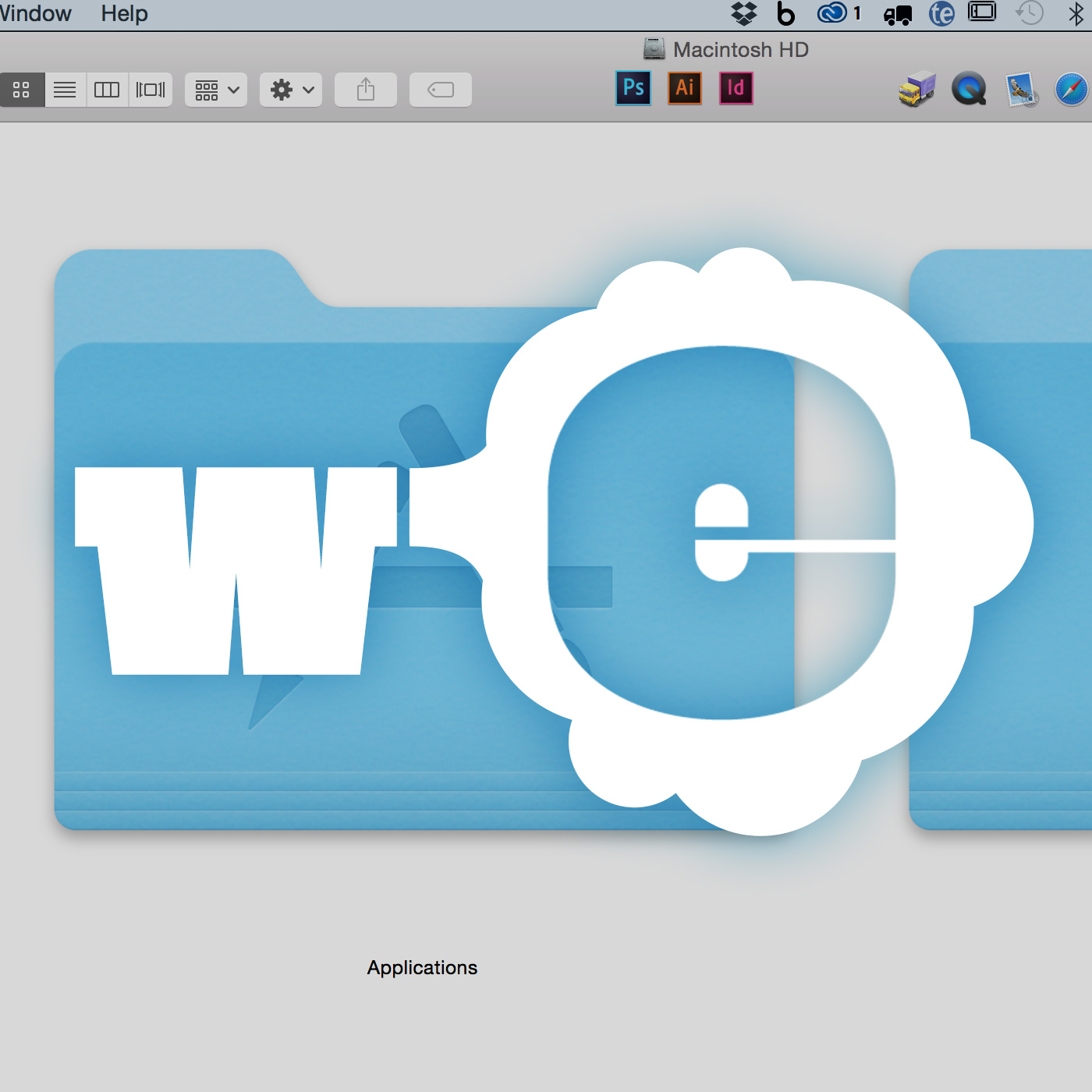Nothing like waking up to a delicious schadenfreude sandwich with sausage, egg and cheese on an English muffin. Delicious.
CNN commentators using Microsoft @surface tablets as an iPad stand:

CNN commentators using Microsoft @surface tablets as an iPad stand:

Tim Urban on why Gen Y Protagonists & Special Yuppies (aka, ‘GYPSYs’) are unhappy, whining little bitches:
After graduating from being insufferable hippies, Lucy’s parents embarked on their careers. As the 70s, 80s, and 90s rolled along, the world entered a time of unprecedented economic prosperity. Lucy’s parents did even better than they expected to. This left them feeling gratified and optimistic.
With a smoother, more positive life experience than that of their own parents, Lucy’s parents raised Lucy with a sense of optimism and unbounded possibility. And they weren’t alone. Baby Boomers all around the country and world told their Gen Y kids that they could be whatever they wanted to be, instilling the special protagonist identity deep within their psyches.
This left GYPSYs feeling tremendously hopeful about their careers, to the point where their parents’ goals of a green lawn of secure prosperity didn’t really do it for them. A GYPSY-worthy lawn has flowers.
Urban targets Gen Y as people born between the late 70s and mid 90s. I say the behavior he’s describing relates most to the those born in the ’90s (aka, ‘Millenials’). I was born in 1977 and most of the people my age I know locked down careers right before shit got rocky for the kids entering the workforce in the ’00s and ’10s.
Then there’s social media world taunting the GYPSYs:
Social media creates a world for Lucy where A) what everyone else is doing is very out in the open, B) most people present an inflated version of their own existence, and C) the people who chime in the most about their careers are usually those whose careers (or relationships) are going the best, while struggling people tend not to broadcast their situation. This leaves Lucy feeling, incorrectly, like everyone else is doing really well, only adding to her misery.
He’s absolutely right. If you’re going use social media, use it in small doses or it’s like having too many beers.
Following Google’s new guide for switching to Android will put you firmly in the company’s grip.
That’s not necessarily a bad thing, as Google has strong cloud services for managing your mail, photos, contacts, and music. Yet in contrast with Apple’s recently published tutorial for migrating to the iPhone, Google’s strategy is to keep you using its services even if you do move back to the iPhone one day. Its services are also clearly better at migration and present on both platforms, making switching painless.
Wow, Google locks you into it’s ecosystem like Apple.
I’m shocked!
It seems Google and Apple want seamless experiences across all their services on their hardware.
Sounds horrible and illogical.
Russell Brand is charming and can be persuasive when you see him on television, but it seems his abilities end with his rhetorical skills:
But Brand isn’t a writer, no matter how much he fancies himself one, so fairness demands we cut him a tiny bit of slack. He is, though, a comedian, so there is little excuse for the painfully limp jokes, often lurking at the end of a sentence in parentheses: “You know me, when I started this book I really thought I might be able to write my version of, I dunno, Mein Kampf (whatever happened to that guy?)”; “I mean, if Gandhi can write a letter to Hitler, lovingly requesting that he step back from genocide (that went well!)”; “He–remarkably and with a straight face–tied it in to 9/11 (you remember those towers; there were two of ’em, I think)”; “…that cuddly ol’ Thatcher chum, General Pinochet–although if you ask me he wasn’t that general; he was specifically a bit of a bastard.”
Oh dear.
The problem here isn’t so much that Brand knows nothing about history, is politically naive, doesn’t understand even the rudiments of economics, can’t write, and manages 320 pages without producing a single laugh. It’s that his self-righteousness often veers into the authoritarian.
And he’s selling t-shirts with his face in the ‘Che Guevara pose’ on his website. Good lord.
I’m the type of liberal that believes government is the single greatest agent for social justice that mankind has ever invented. I believe in strong regulation of business, because the market does not prevent unethical behavior, nor does it punish such practices in an effective fashion. Without regulation, our water would be undrinkable, our air would be unbreathable, our cars would be deathtraps, and our collective life expectancies would be years, if not decades, shorter, due to all the carcinogens our bodies would absorb. Without the flawed financial regulations we have, tens of millions of us would be living in abject indentured servitude to banks.
I believe in progressive taxation and the social safety net. I believe in investment in infrastructure. I believe in sensible national defense, and that the military-industrial complex has siphoned away trillions of dollars too much in my lifetime. I believe it is a travesty that although we have the greatest economy the world has ever seen (that crown will be, or has already been, given up, depending on the source), we do not have universal healthcare for our people.
I am horrified by the role money has taken in our politics since the Citizens United ruling. Politics, as described by Robert Caro, has always been about the acquisition and distribution of funds. Whichever politician has control of the most money also has the most power. But, the ability of a small number of wealthy Americans to influence members of Congress with their riches has overwhelmed the system, reducing the significance of a single vote.
—Bryan Larrick, A Voter’s Lament

—Zhuo
This week Michael and Bryan discuss Yosemite gripes, Helvetica sucking on screens, Apple iterating too fast with software releases, the end of Byran’s Horror Show Reviews, staying away from adverbs, the horror flick Oculus and how poor cars are as a form of transportation. This episode opens with the exhaust from a Bugatti Veyron.
Listen Now
Subscribe on iTunes

What an interesting guy:
Over the last 10 years, Nolan has emerged, along with Tarantino and Paul Thomas Anderson, as one of Hollywood’s most visible advocates for film, with its exacting texture and granularity of hue, over the Styrofoam flatness of digital. Nolan is a gestalt thinker and entertainer, and he thinks that it’s technical details like these, even the ones we register only unconsciously, that make the theatrical experience a vivid and continuous dream: “At the movies, we’re going to see someone else put on a show, and I feel a responsibility to put on the best show possible.”
I always love how a person’s formative years help define the course of his life:
To hear Nolan tell it, however, the film’s true origin story begins much earlier, when Nolan was 7; his father, a British advertising copywriter, took him to see, within the span of about a year, the initial release of “Star Wars” and a theatrical rerelease of “2001.” The age of 7, perhaps not coincidentally, was also the year in which he started to make his own movies, on a Super 8 he borrowed from his dad. Those two movies — one that helped inaugurate the auteur-driven New Hollywood, and one that inadvertently ushered in the era of the reinvigorated, blockbuster-based studio system — have remained his touchstones, and “Interstellar” represents his opportunity to repay his debt to both of them at the same time. Jonah, when he came to visit the set and saw the spaceships, said to him, “Of course we’re doing something like this; this was our whole childhood.”
And:
His childhood was apportioned between London and Chicago. Jonah, who is six years younger, told me that his very earliest memories were of his older brother making stop-motion space odysseys, painstaking processes of tweaking the gestures of action figures. They went to the movies constantly, and Jonah recalls that they brooked no distinction between the arty and the mainstream; they’d go to Scala Cinema Club in London to see “Akira” or a Werner Herzog film one month and then go to the Biograph in Chicago to see “The Commitments” the next. (When Jonah was 13 or 14, Nolan gave him two Frank Miller volumes, “Batman: Year One” and “The Dark Knight Returns,” which the two revered.)
I’m really looking forward to Interstellar.
Nathan Kontny with some great analogies to the creative process of stealing, breaking down and reconstructing:
Professional car thieves know that as soon as you steal a car, your next immediate task is to get it to a chop shop. A chop shop is an illegally operating garage that specializes in taking a car and almost literally chopping it into pieces. In less than an hour, a stolen car is chopped. Seats, windshield, airbags – every individual item is removed. Things with VINs are dumped, destroyed, or melted down.
Now, thieves have extremely valuable parts on their hands. Wheels, entertainment systems, air bags – all can go for hundreds to thousands of dollars on their own. Even melted down. A catalytic converter contains platinum going for $1500 an ounce.
And in their sale, they can’t be traced back to the original owner or the crime.
JP Mangalindan from Fortune on the Amazon Fire Phone:
In an interview with Fortune, Amazon Senior Vice President of Devices David Limp acknowledged Amazon bumbled the phone’s pricing. Traditionally, Amazon AMZN 1.30% undercuts the competition on hardware, pairing lower prices and solid features. But with the Fire phone, Amazon stuck to standard industry pricing, asking $199 for the 32 gigabyte model and $299 for the 64 gigabyte. On that front, Amazon, well, misfired.
Right, it was the price. Couldn’t have had anything to do with being a gimmicky turd.
Things aren’t looking good for Samsung:
What is Samsung’s “nightmare scenario,” you ask? That it will become just another low-margin Android vendor. For years, Samsung has literally been the only Android smartphone vendor to consistently turn a profit. Indeed, Samsung and Apple for a long time have accounted for all of the smartphone industry’s profits as smaller players have had to force themselves to fight over scraps.
But two things are happening right now that are sucking the life out of Samsung’s smartphone profit machine: It’s getting squeezed at the high end by Apple, which has finally released a phablet capable of taking on the popular Galaxy Note, and it’s getting mauled at the low end by vendors such as Xiaomi that are cranking out phones with strong specs that sell at rock-bottom prices.
Maybe if Samsung keeps copying Apple things will turn around?